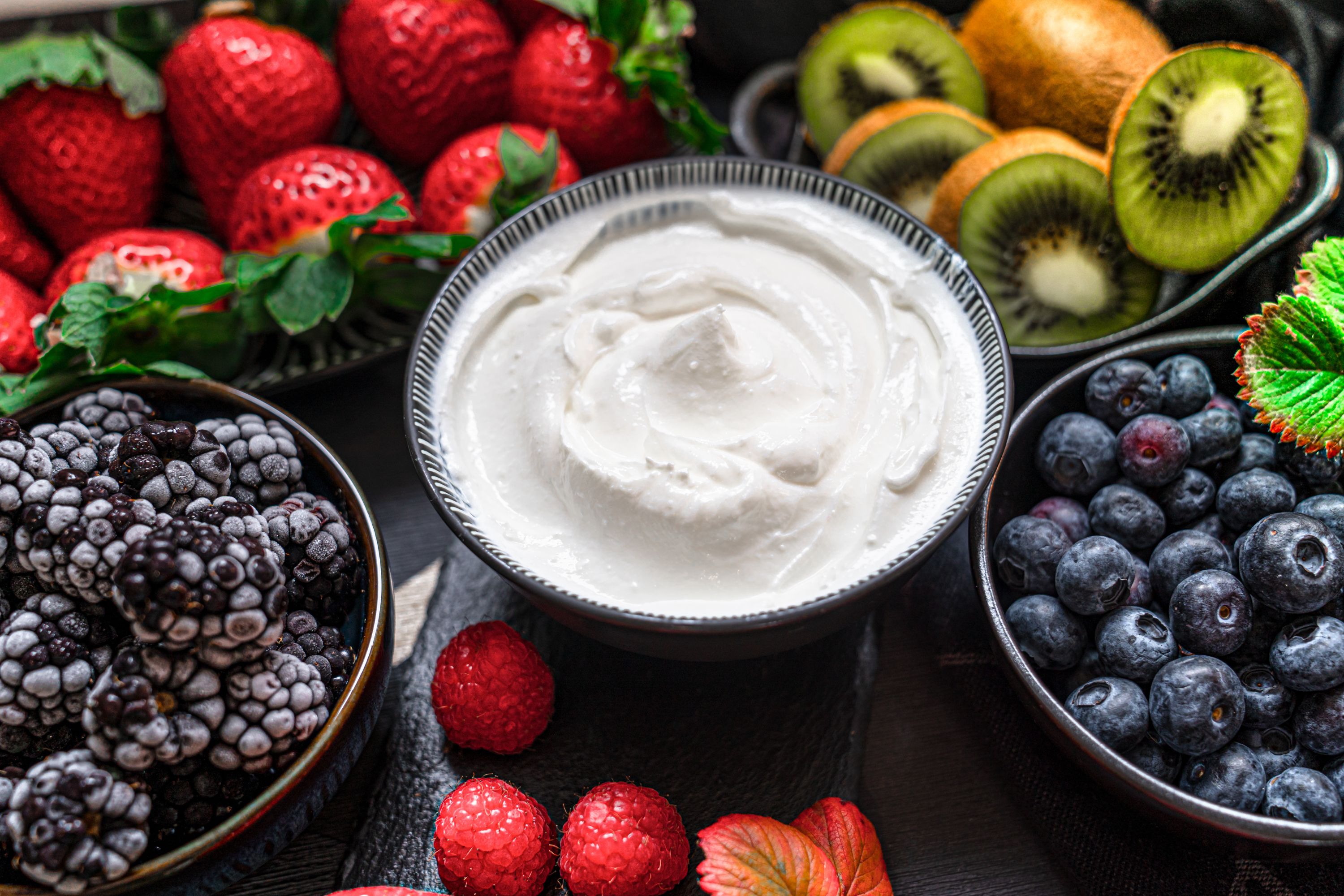Prebiotics and probiotics for gut health: what's the difference?
Everything you need to know...


Gut health can be confusing – all that talk about intestine flora and fauna. And what is the difference between pro and prebiotics? Here’s the lowdown...
Prebiotics and probiotics are important for digestion and play a big role in how to improve gut health. Your gut is amazing, but it’s also complicated! It contains around 100 million neurons – ‘the same number as in a cat’s brain,’ says TV doctor Michael Mosley, author of The Clever Guts Diet (Amazon, £5.95) . ‘And it includes a richer diversity of life than in a rainforest.’ There are 50 trillion (1-2kg) of microbes living in it – the weight of a couple of bags of sugar – made up of more than 1,000 different species, including bacteria, fungi and viruses.
It’s called your microbiome and its effects are felt way beyond just your gut (large intestine) by way of your stomach and toilet habits. Scientists now believe gut health has a huge impact throughout your body, including regulating your moods, altering your immunity levels and even dictating how much weight you gain. Here's everything you need to know about gut health, including the difference between prebiotics and probiotics...
Prebiotics and probiotics for gut health: What's the difference?
- Probiotics: These are live bacteria and yeasts (often called ‘good’ or ‘friendly’ bacteria), usually added to foods, such as yogurts, or taken as a food supplement. They are believed to help restore the balance of gut bacteria after it has been affected by illness or treatment and can help ease the symptoms of IBS.
- Prebiotics: These are a type of dietary fibre, and are found in foods such as leeks, onions and garlic, which feed the ‘friendly’ bacteria in your gut.

‘While probiotics are the live bacteria themselves, the lesser-known prebiotics are what feed the good bacteria, helping them thrive – like a fertiliser for your own gut flora,’ says Glenn Gibson, Professor of Food Microbiology at the University of Reading.
They’re not found in food in huge amounts, so you may want to take a prebiotic supplement - try Bimuno Daily (£11.99 for 30 sachets, Boots).
What about fermented foods?
These have undergone controlled microbial growth and fermentation, and often contain higher levels of the gut-friendly probiotics and prebiotics.
Parenting advice, hot topics, best buys and family finance tips delivered straight to your inbox.
Try sauerkraut, miso and cultured milk and yogurt and cut back on red and processed meat - there’s evidence that eating too much increases bowel cancer risk. Aim for less than 500g a week (cooked weight).
Does your gut health impact your brain?
Your microbiome takes bits of food your body can’t digest and converts them into hormones and chemicals, which can impact your moods and could help reduce anxiety and depression.
This relationship between bacteria and our mental health is why scientists sometimes call our gut ‘the second brain’. ‘The brain and gut are highly connected,’ says Dr Anthony Hobson from the Functional Gut Clinic. ‘Signals from the gut go to the brain, and vice versa.’
Research from the APC Microbiome Ireland at University College Cork found low levels of gut microbes raised the risk of anxiety and depression, while higher amounts lowered it.
Is your gut health making you fat?
It could be. Because the balance of your microbiome helps regulate your weight, according to Dr Mosley: ‘It decides how much energy to take from each meal, which foods you crave, as well as controlling hunger pangs and blood-sugar spikes.’
A study of sets of twins at Washington University found that those who were overweight had fewer types of gut bacteria. Scientists think that a broad range of different bacteria has an effect on how dietary fats are absorbed in the intestines and stored as fat in the body. It’s not exactly known yet what makes up the perfect microbiome, but the belief is that the more diverse your range of bugs, the better.
Gut health and IBS
Healthy gut bacteria are vital, particularly when you suffer from Irritable Bowel Syndrome (IBS).
‘If you get an imbalance of the types of bacteria, then this can create IBS symptoms,’ says Dr Hobson. ‘Either you produce too much gas or acids in the bowel and that can create tummy upsets and cramps, or the bacteria can escape from the colon and move up into the small bowel.
'This is known as small intestinal bacterial overgrowth, which can interfere with digestion.'
Try Silicolgel (£8.29 for 200ml, from chemists and supermarkets). It coats the stomach and upper gastrointestinal tract with a protective lining of silicic acid gel for the relief of reflux, heartburn, flatulence, stomach pain and nausea.
How does fibre help your gut health?
Foods high in fibre act as ‘manure’, which help gut bugs to grow. They also add bulk to your poo, making it easier to travel through your bowel (which those on a low fibre diet might have trouble with).
So for a healthy gut eat plenty of fresh fruit and veg, wholegrains (brown rice and wheat) and pulses (peas, beans, lentils). Fruit and veg are also full of polyphenols, which help microbes thrive. And the bacteria that digests fibre produces chemicals that benefit gut health.
Video of the Week

Jessica Dady is Food Editor at GoodtoKnow and has over 12 years of experience as a digital editor, specialising in all things food, recipes, and SEO. From the must-buy seasonal food hampers and advent calendars for Christmas to the family-friendly air fryers that’ll make dinner time a breeze, Jessica loves trying and testing various food products to find the best of the best for the busy parents among us. Over the years of working with GoodtoKnow, Jessica has had the privilege of working alongside Future’s Test Kitchen to create exclusive videos - as well as writing, testing, and shooting her own recipes. When she’s not embracing the great outdoors with her family at the weekends, Jessica enjoys baking up a storm in the kitchen with her favourite bakes being chocolate chip cookies, cupcakes, and a tray of gooey chocolate brownies.